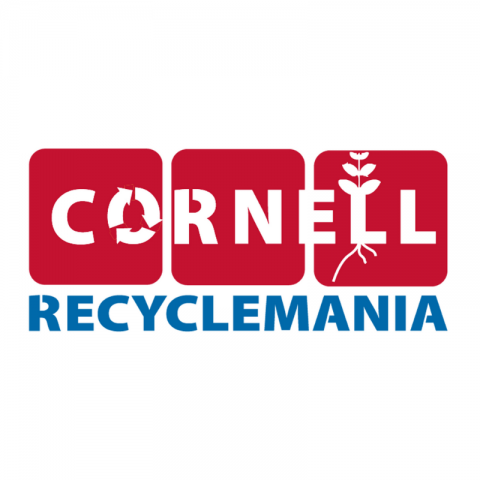
Cornell University was once again a proud participant in RecycleMania in 2019, a national competition that challenges universities to focus on recycling and waste reduction. RecycleMania leverages school spirit to engage and motivate students and staff to recycle and reduce waste, benchmarks our school’s recycling and waste reduction efforts against other campuses, and reduce waste and lower our environmental footprint.
See our results for this year's competition!
Overall Results
Over the eight weeks, Cornell diverted 533,757 lbs of mixed recyclables from the landfill, and 436, 590 lbs of compost as successfully reclaimed food waste on campus. Materials captured in alternate waste streams are diverted from the landfill, lightening our total impact as a campus and community. The result of reducing this much waste during the competition was also equivalent to removing 794 metric tons of CO2e from our carbon footprint during the six weeks, which is about equal to the energy consumption of 69 households or 156 cars for an entire year of use .
As compared to other participating institutions across the nation, Cornell has room for improvement. You can see the overall competition results below. However, on a more local level, Cornell ranked first in electronic recycling and second in total recycling out of all participating colleges in New York State. For diversion and per capita, Cornell ranked fifth and tenth, respectively, showing room for potential improvement in the future.
About the Competition
The competition measures three main categories: waste diversion, recycling per capita, and food organics. The University also participates in a bonus category of e-scrap recycling, or diversion of electronic materials like batteries, computers, and other technology goods from the landfill for proper reuse or disposal. Waste diversion indicates the total amount of waste reduced (even recycling is still "waste," so our ultimate goal is to reduce all waste overall). Recycling is measure per capita, or per person, and food organics is our composted materials reclaimed across dining services and other campus locations, like the Residential Composting initiative.
Cornell Rankings Compared to National Rankings (2019)
- E-scrap: 6th out of 45 (3rd)
- Cornell recycled over 60,000 tons of electronic waste
Overall Waste Diversion
62nd out of 160 participating campuses
Cornell diverted 40% of waste from the landfill during the competition, but most campuses did better.
Overall Waste Diversion
71st out of 216 participating campuses
Looking at waste on a per capita basis (by individuals), the results were even more indicative that we can do better as a campus in coming years, with Cornell coming in 71st out of 216 participating campuses with 12.6lbs of material recycled on a per person basis.
Food Waste
115th out of 149 participating campuses
Looks like this is an area of improvement for our campus. Many campuses were able to collect a greater amount of total food waste during the competition. However, in addition to composting organic material, Cornell donated nearly 2000lbs of food that otherwise would have been composted, went to the Food Recovery Network, an organization dedicated to simultaneously reducing food waste and hunger in the Ithaca area. Food waste from campus dining halls becomes accessible to the community at local food pantries.
This story written by Karlye Heavey, Communications Specialist Intern, Campus Sustainability Office (Summer 2019)

